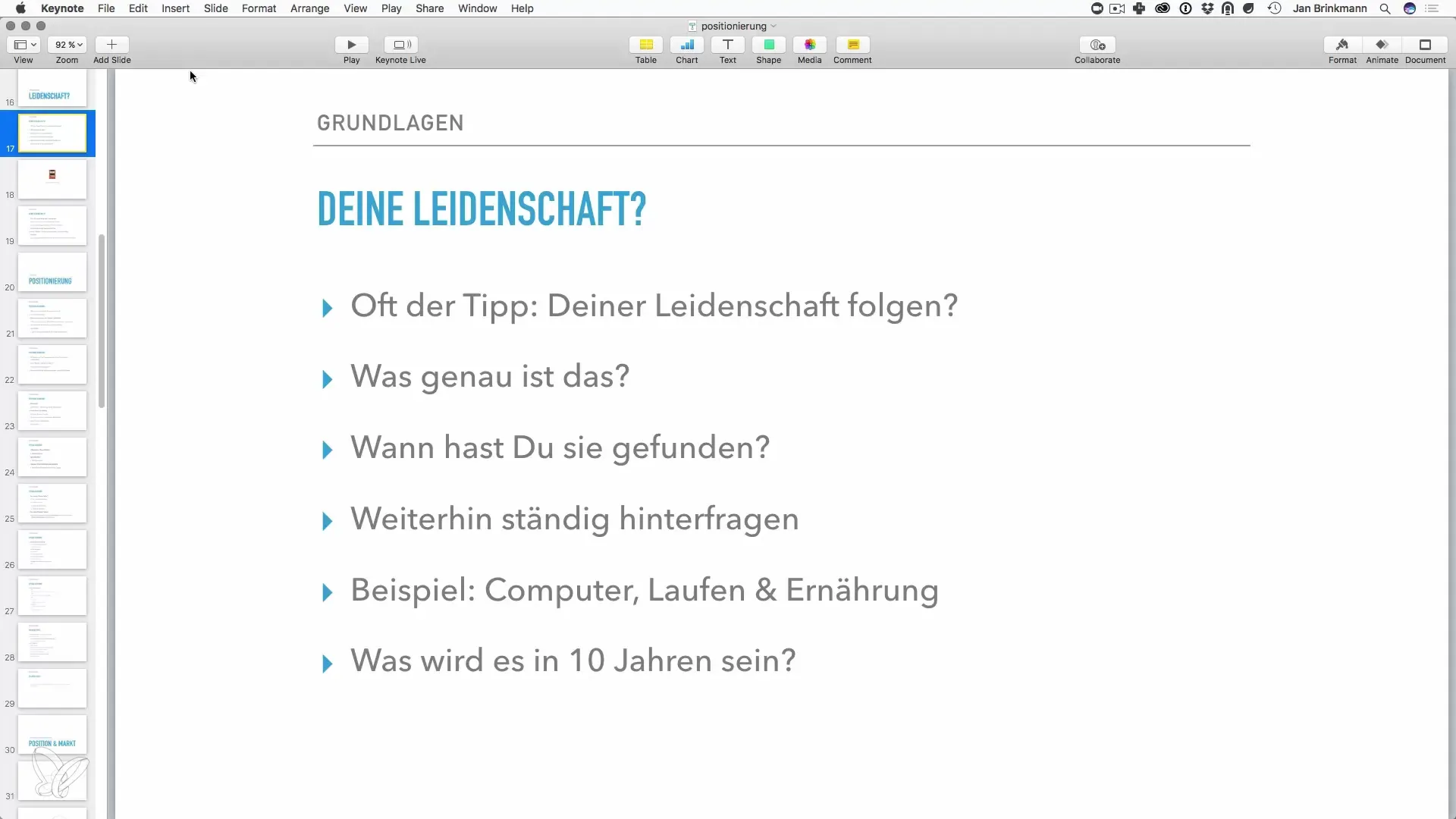The common recommendation "Follow your passion" is often seen as a guiding principle for one's career path. But what if these pieces of advice do not yield the expected results? In this text, you will learn why it might be more effective to shift your focus from passion to your skills. It's time to gain deeper insight into choosing your niche and the associated positioning.
Key Insights
- The definition of passion is often unclear and can fluctuate.
- It makes more sense to consider skills and competencies as the foundation for career choices.
- The flow state that arises from peak performance at work is an indicator of satisfaction and success.
- A higher mission can only arise after certain experiences and skills are acquired; it should not be the starting point of your career planning.
Step-by-Step Guide to Effective Career Finding
Step 1: Analyze Your Current Situation and Interests
Before diving into self-employment or starting a business, it's essential to thoroughly examine your interests. Consider: What do you enjoy? Do you have passions that you would like to use as a basis for your career choice? Often, these questions seem simple, but the answer can be complicated.

Step 2: Differentiate Between Passion and Fun
Passions can be diverse and variable. Sometimes it's hard to determine what exactly defines your passion. It's essential to differentiate these terms. For example, someone might be passionate about sports, but whether that provides a foundation for a business model is questionable.

Step 3: Evaluate Your Skills
Instead of focusing solely on your passions, you should also address your skills. Think about what areas you excel in. An area where you have learned and grown significantly can be crucial for your career. Cal Newport's book "So Good They Can't Ignore You" suggests viewing skills as the true foundation of your career.
Step 4: Identify a Meaningful Niche
There are many niches and activities that are already being considered by others. Think about in which area you can create an authentic and direct connection to your skills. It's important to choose a niche that takes both your interests and your strengths into account.
Step 5: Seek the Flow State
The flow state occurs when you are so immersed in your work that you lose track of time and tune out your surroundings. This often happens when you work on projects that not only bring you joy but also allow you to showcase your best performance. Discover in which situations this state occurs and create more of those.
Step 6: Formulate Your Higher Mission
Once you are sustainably active in an area, a higher mission may crystallize. This mission could help you support others and make a real contribution. It's not just about having fun, but also about finding meaning in your work.
Step 7: Plan Consistently for the Future
Based on your experiences, skills, and the niche you have chosen, it is now time to develop a clear plan. Consider what steps are necessary to achieve your career goals. This might include implementing a blog or an online course to share your knowledge and inspire others.
Summary - Passion or Skills: What is Crucial for Your Career?
In many cases, it is more effective to focus on your skills as a central foundation for your professional path rather than following blind recommendations. Use this guide as a foundation to clearly define your goals and strategically and sustainably shape your professional life.
Frequently Asked Questions
How do I find out what my passion is?It is helpful to try various activities and reflect on what brings you joy and fun.
What is the flow state?The flow state describes moments when you are so engrossed in an activity that you lose track of time and thrive in your work.
Should I always follow my passion?It may be more effective to develop skills while having fun, rather than just following passion.
How do I find a niche for myself?Analyze your interests and skills and research where there is demand and opportunities.
Does a higher mission play a role in my career?Yes, a higher mission can develop after you have gained relevant experiences and realize how you can make a social contribution.


